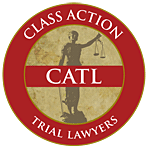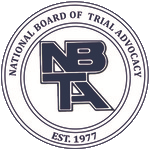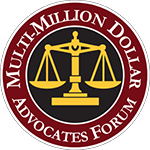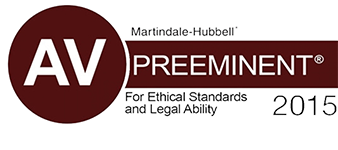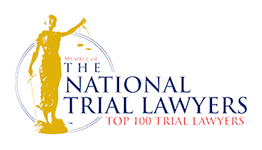
When you file a personal injury claim against a negligent party, you hope to receive full and fair compensation for the damages you sustained. As the plaintiff, you have been injured due to the fault of the defendant, and it is equitable that they compensate you for your losses. It is certainly a great relief when your case has been resolved and you are able to move forward with your life. The last thing you want to hear is that the defendant is refusing to pay you what you are rightfully owed.
While you may hope to smoothly receive your monetary award immediately after the resolution of your case, it doesn’t always happen this way. Insurance companies are often involved, and when they are, they can usually be depended upon to pay the amount in question. But it is not unheard of to learn that the defendant has claimed to be unable to pay the money they legally owe you, whether it is the amount decided in a settlement or a judgment made by a court. If this happens, you need to speak with your attorney. Extra steps may be required to secure the compensation to which you are entitled.
Our team at Golden Law Office knows that financial compensation is only one step toward your recovery after a damaging accident. But it can also be a much-needed component of healing and returning to the things that are important in your life. You shouldn’t have to spend your time and effort chasing down the support you have already been granted. We’ve helped many of our clients secure compensation for their losses, even when a defendant is uncooperative. Let’s take a look at what happens when a defendant can’t pay the plaintiff what they’re owed.
Why a Defendant May Not Directly Pay the Plaintiff
It is important to remember that a compensation sum is based on the amount of money you need to cover the losses you sustained through the defendant’s wrongful actions. Therefore, claiming that the award amount is not feasible, after the settlement or judgment has already been made, is not a legally valid reason to avoid payment. That matter was already decided in the legal proceedings, and the defendant should be well aware of this.
However, there may be some causes, intentional or unintentional, which result in the defendant not following the mandate to pay the award. Some of the following factors may be in play:
- The defendant is not sure how to make the payment.
- The defendant is nervous about the process and waiting to be contacted.
- The defendant is planning to pay but has not done so yet.
- The defendant has been hindered by an unforeseen complication.
- The defendant does not have the money liquid and readily available.
- The defendant is unwilling to use less-liquid assets to pay the money owed.
- The defendant wants to save up the money and pay later.
- The defendant is begrudging of the decision and willfully refusing to pay.
Your lawyer will be able to identify the reasons behind the lack of payment, and take suitable measures to work with the defendant, keeping them legally compliant while getting you the financial assistance you need and have been rightfully awarded.
Enforcing Settlements
When personal injury cases are resolved, it is almost always in settlement. While some cases end up going to trial, the majority are settled between the two opposing parties out of court. Most often the agreed-upon terms are followed, but sometimes one party fails to fulfill their duty, as is the case when a defendant does not pay the plaintiff.
Your lawyer will thoroughly understand the details of the settlement agreement to know if the contract has been violated. This can include specifics such as the amount to be paid, the payer and payee, the time for payment, and any relevant taxes, confidentiality clauses, or other conditions of the agreement. If it is shown that the defendant violated the terms of the agreement, your lawyer can use the enforcement tools set out in state legislation to help obtain your compensation. Your attorney may recommend that you take further legal action. An experienced lawyer can advise you on whether an option such as a motion to enforce a settlement agreement (asking the court to enforce the settlement) is right for your situation.
Understanding Collection Methods
The process of recovering unpaid monetary judgments is known as “collection.” There are a variety of methods which can be utilized in collection efforts, ranging from basic communication to more assertive approaches. The collections process can become complicated, so it is imperative that you only move forward with the legal guidance of a trusted attorney, never on your own.
Here are some of the measures that can be taken to secure a delinquent monetary award:
- Sending a reminder notice to the defendant
- Contacting the defendant’s bank or financial supporter
- Reaching out to the defendant’s employer
- Locating the defendant’s assets, including cash, financial accounts, safe deposit boxes, investments, personal property, vehicles, real estate, or business ownership
- Seizing property
- Garnishing wages (taking salary to pay the owed money)
- Establishing a schedule of payment over time
These methods of collection apply to cases in which the defendant, whether an individual, corporation, or other organization, is secure and financially fit. There are other cases in which it may be deemed that the defendant is unfit to pay, and there are types of income that generally cannot be garnished through a court order, including public assistance such as the Kentucky Transitional Assistance Program (KTAP) and workers’ compensation. Before you begin a personal injury claim, your lawyer will help advise you on these matters.
Our Firm Can Help You
We understand that the costs of an accident can have a substantial impact on your life. One of our personal injury lawyers at Golden Law Office can help you recover what you’re owed. We will work with you from beginning to end, continuing to fight on your behalf beyond the settlement or court judgment if necessary.
Because we’re dedicated to winning justice and getting you the fair compensation that you deserve, we stand by your side through every step of the process. You can rest assured that we continually have your best interests in mind. No matter where you are in your legal proceedings, we invite you to reach out to us for an obligation-free consultation.
